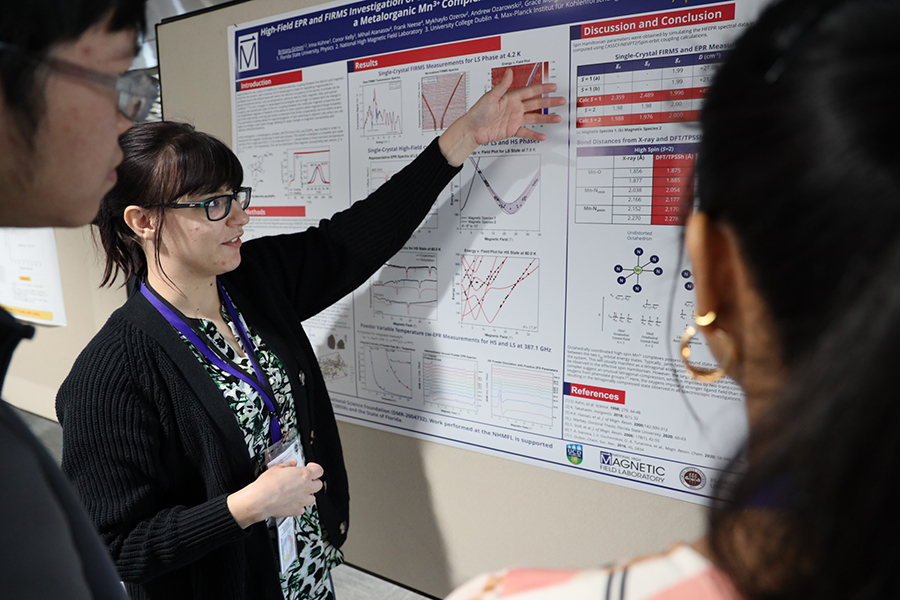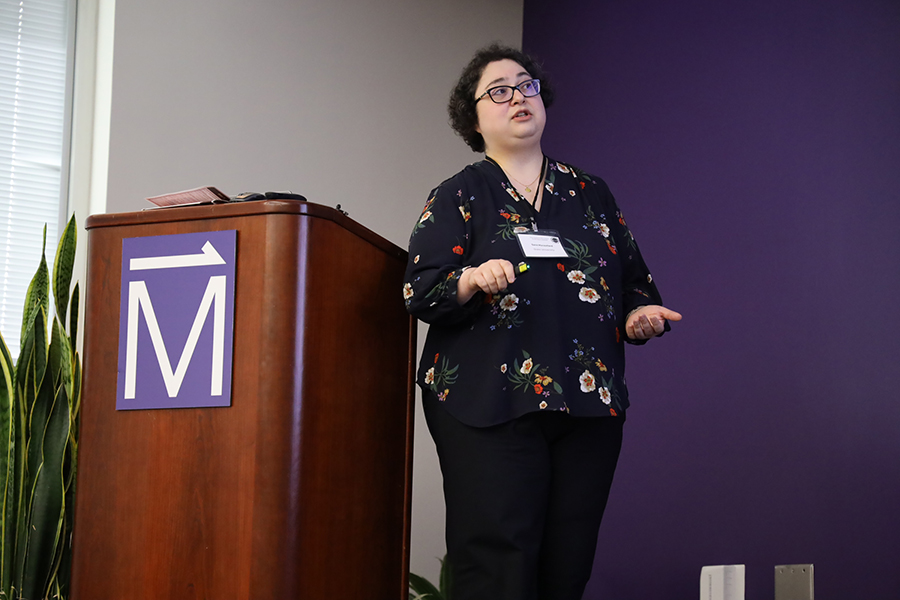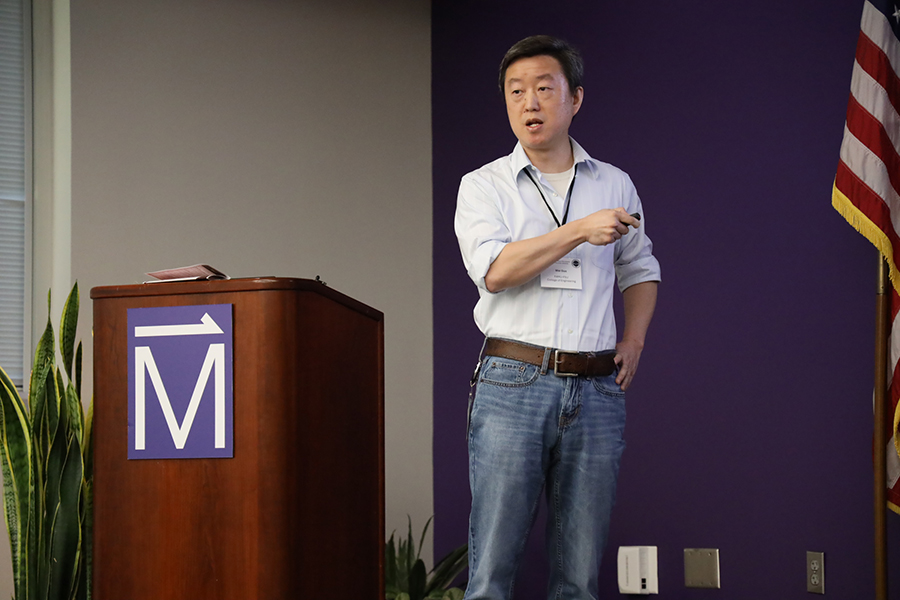
Researchers from around the country came to Florida State University this week to discuss the cutting edge of quantum science and engineering.
The Dirac Quantum Discussions, hosted from April 11-13 at the FSU-headquartered National High Magnetic Field Laboratory (NHMFL), brought together more than 70 faculty, students and postdoctoral researchers for the latest event in the FSU Quantum Initiative.
The FSU Quantum mission is to accelerate the discovery of new quantum phenomena that can impact the design of engineered systems for quantum information processing, communication, sensing and algorithms, as well as devices and hardware that rely on quantum protocols.
"This is a very exciting time to be conducting quantum research and developing new tools using principles of quantum mechanics," said Michael Shatruk, a professor in the Department of Chemistry and Biochemistry and the director of FSU Quantum. "With this initiative, Florida State continues to establish itself as a major contributor to this field."
Along with faculty from FSU and NHMFL, invited speakers came from the Massachusetts Institute of Technology, Duke University, Emory University, Ecole Normale Superiure Paris, University of Notre Dame, University of Central Florida, Florida International University, University of Florida, and North Carolina State University.
This marks the third year in a row FSU has hosted a quantum symposium. At last year's event, President Richard McCullough announced $20 million in funding to support hiring at least eight new faculty members, provide equipment and dedicated space in the university's Interdisciplinary Research and Commercialization Building (IRCB), and seed money for new interdisciplinary collaborative efforts in quantum science and engineering.
The new IRCB facility, which is expected to open in January of 2025, will serve as the headquarters for FSU Quantum. The first cohort of new faculty hired under the program will start in the fall, and many of them will be housed in the IRCB. With the state-of-the-art equipment and remarkable faculty talent, FSU leadership envisions the IRCB as a regional focal point for quantum science and engineering, drawing researchers from around the Southeast who may use the equipment for their own projects. These visitors also will be able to leverage the expertise of FSU Quantum faculty, who have published more than 40 papers in the field over the last 2 years.
"We are making great strides as we build FSU Quantum," said Vice President for Research Stacey S. Patterson. "The university has invested in new space, equipment, faculty and programs to build a foundation that will push forward quantum science and engineering knowledge. Our goal is to make FSU a destination for researchers in this field, and we are really excited for the future of this initiative."
The interdisciplinary nature of quantum research was illustrated by the variety of speakers at the symposium, said Stephen Hill, a professor in the Department of Physics and director of the Electron Magnetic Resonance user program at NHMFL.
"The researchers here are interested in widely varying problems," he said. "The way you solve the problems that are at the forefront of this field is by bringing together people with expertise in different areas to talk to each other."
Exploring new states of matter, such as topological superconductivity or quantum spin liquids, is an exciting aspect of this emerging science, said Sara Haravifard, an assistant professor of physics at Duke University who presented her research at the symposium. The fundamental research her work helps to build informs the cutting edge of quantum technology.
"If we develop a new material that has quantum entanglement in it, that will help to realize the next generation of fault-tolerant quantum computers," she said. "In events like this, we get out of our own bubble. For example, I am focused on bulk materials, but here I see many talks looking at 2D materials or at different techniques being used. It's an opportunity for both learning and collaboration."
FSU faculty are also developing certificate programs in quantum science and quantum engineering for doctoral students, allowing them to build skills in a field that offers limitless potential for revolutionizing technology and advancing our understanding of the universe at its most fundamental level.
Students trained in quantum science will enter a rapidly growing field with vast possibilities. Quantum computing has the potential to solve complex problems that would take classical computers many years to calculate, such as drug discovery, optimization and cryptography. New materials created using quantum technology could revolutionize energy storage and transmission.
"In this exciting time of quantum research, FSU is poised to lead the way, and our investments show that," Shatruk said. "Faculty are already publishing in this area and making great strides toward new knowledge, and it is exciting to imagine what we will create as we continue building these efforts and attracting new talent to FSU."









